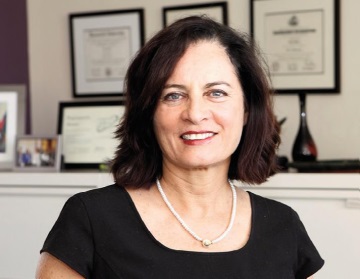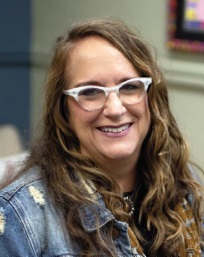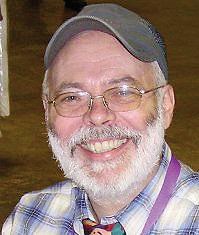TAMAR HELLER, PHD
“Advocacy for and with people with disabilities has been a guiding focus of my research, teaching and organizational activities. It is the motivation behind the national Sibling Leadership Network, which I co-founded, and the research I have been conducting on policies and practices that promote the health and community inclusion of people with disabilities.”

A GUIDING FOCUS: "Advocacy for and with people with disabilities is the motivation behind my research on policies and practices that promote the health and community inclusion of people with disabilities."
Tamar Heller, PhD, Distinguished Professor, heads the Department of Disability and Human Development at the University of Illinois, Chicago (UIC) and its University Center of Excellence in Developmental Disabilities. She also directed the Rehabilitation Research and Training Center (RRTC) on Developmental Disabilities and Health and the Family Support Research and Training Center. Her research focuses on health and long-term services and supports for individuals with disabilities and their families through the life course.
Dr. Heller serves on the executive council, directs its publication committee, and is Vice President of the Americas for the International Association for the Scientific Study of Intellectual and Developmental Disabilities (IASSIDD). She was President of the Association of University Centers on Disabilities (AUCD) board, a delegate to the 2005 White House Conference on Aging, and co-founder of the national Sibling Leadership Network.
Dr. Heller's awards include the 2009 Arc of Illinois Autism Ally for Public Policy Award; the 2008 Lifetime Research Achievement Award, IASSIDD, Interest Group on Aging; the 2009 Community Support Services Community Partner Award; the 2010 College of Applied Health Sciences, UIC Outstanding Researcher Award; and the AUCD 2012 International Award.
AMY HEWITT, PHD
"I am driven by social justice and the need to make our communities inclusive for everyone because we all belong here. The committed direct support professionals who make community living possible for many people with intellectual and developmental disabilities have extremely difficult jobs that demand high levels of skill, yet policymakers, systems, and society have not valued, rewarded, and respected them as professionals. I conduct research that provides ammunition for addressing the high turnover, high vacancy rates, and low wages for this essential workforce. As we struggle with the devastation of the COVID-19 pandemic, there has never been a greater need for this change, nor a better time to recognize the immense value of direct support professionals."
Amy Hewitt, PhD, has an extensive background in the field of intellectual and developmental disabilities. She has worked in various positions over the past 39 years to
improve community inclusion and quality of life for children and adults with disabilities and their families. Her career began as a Direct Support Professional, and she currently employs DSPs to support her brother-in-law. She is the Director of the University of Minnesota's Institute on Community Integration, and conducts research, evaluation and demonstration projects about community services for children, youth and adults with intellectual and developmental disabilities.

DRIVEN BY SOCIAL JUSTICE: "There has never been a better time to recognize the immense value of direct support professionals."
Dr. Hewitt has authored numerous journal articles, curriculum, technical reports, including a book entitled, Staff Recruitment, Retention and Training. She is on the editorial board of Inclusion and associate editor of Intellectual and Developmental Disabilities both journals of the AAIDD. She is a Past President of the Association of University Centers on Disability (AUCD) and Past President of the American Association on Intellectual and Developmental Disabilities (AAIDD).
JOAV MERRICK, MD, MEDSCI, DMSC
“My guidelines in my work with people with intellectual and developmental disabilities has always been the wise words of Hubert H. Humphrey: ‘The moral test of government is how that government treats those who are in the dawn of life, the children; those who are in the twilight of life, the elderly; and those who are in shadows of life, the sick, the needy, and the handicapped.’ I have made that my own test also.”
Joav Merrick, MD, MMedSci, DMSc, born and educated in Denmark, is Professor of Pediatrics. affiliated with the Division of Pediatrics, Hadassah Hebrew University Medical Center, Mt Scopus Campus, Jerusalem, Israel; Kentucky Children’s Hospital, University of Kentucky, Lexington; and Professor of Public Health at the Center for Healthy Development, School
of Public Health, Georgia State University, Atlanta; the former medical director of the Disability Administration, Ministry of Social Affairs and Social Services, Jerusalem; and the founder and director of the National Institute of Child Health and Human Development in Israel.

A MORAL TEST: "My guidelines in my work have always been the wise words of Hubert H. Humphrey. I have made that my own test also."
A book Dr. Merrick co-authored, Health Care for People with Intellectual and Developmental Disabilities across the Lifespan, is considered by many to be the “Bible” in the field of healthcare for people with IDD since 1989, when the first edition came out. He received the Peter Sabroe Child Award for outstanding work on behalf of Danish Children in 1985 and the International LEGO-Prize (“The Children’s Nobel Prize”) for an extraordinary contribution towards improvement in child welfare and well-being in 1987.